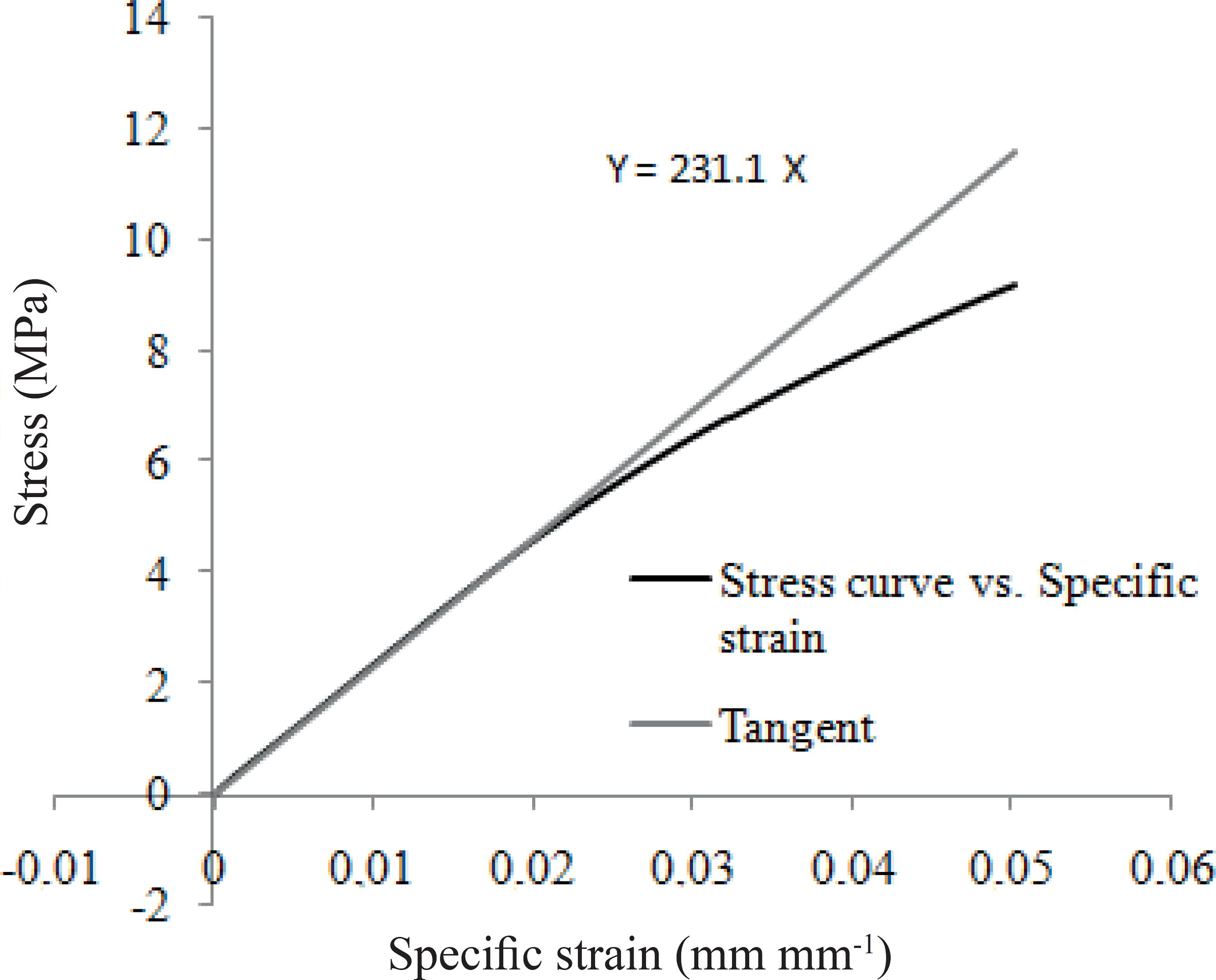ABSTRACT
The fruit of the native macaw palm [Acrocomia aculeata (lacq) Lood. ex Mart] is an alternative for biodiesel production because of the plant characteristics, as well as its adaptability, hardiness and high vegetable oil yield. However, its exploitation remains extractive and there are significant difficulties in its harvest. This study aimed to determine the mechanical properties of the macaw palm fruit-rachilla system that will support the design of harvest machines based on mechanical vibration. Ten samples of four accessions in the immature and mature stages of maturity were used. Traction and vibration tests were conducted to determine the mechanical properties of the macaw palm fruit-rachilla system. The elastic modulus of the rachilla was 188.39-385.09 MPa for the immature stage and 109.02-320.54 MPa for the mature stage. The Poisson's ratio for the rachilla varied between 0.20 and 0.52 for the immature stage and between 0.16 and 0.52 for the mature stage. The damping ratio varied between 0.02 and 0.12 for the immature stage and between 0.06 and 0.12 for the mature stage. The fruit-rachilla system was characterized as underdamped.
KEYWORDS:
Acrocomia aculeata; biodiesel; damping ratio; Poisson's ratio

 Photo: Nara Silveira Velloso
Photo: Nara Silveira Velloso
 Photo: Nara Silveira Velloso
Photo: Nara Silveira Velloso
 Photo: Nara Silveira Velloso
Photo: Nara Silveira Velloso
 Photo: Nara Silveira Velloso
Photo: Nara Silveira Velloso

